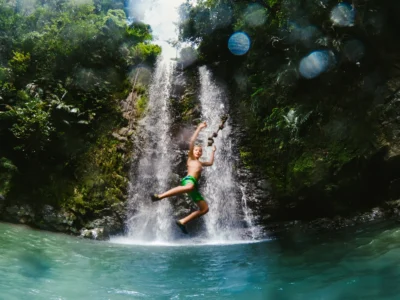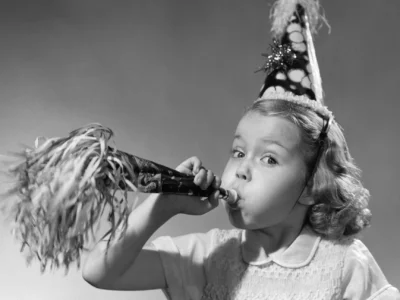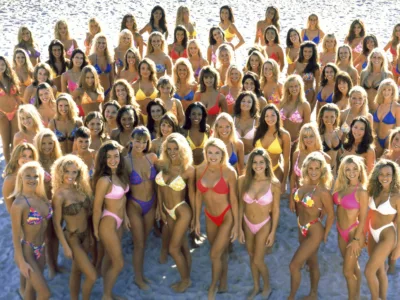Free stock imagery sites. Do they really provide image buyers commercial freedom?
In the beginning, there was commissioned photography. When stock photography started to impact heavily on the traditional, commissioned photography model, there was an outcry amongst photographers who had enjoyed, up until that point, being in control of the imagery supply chain.
With the introduction of mass-market digital cameras, the speed with which digital image making then superseded film only added to the democratization of photography. Then add to the mix the use of the internet as a platform to reach a global audience with all this new digital content and you have a whole industry being dramatically disrupted. Much like the music industry before it.
This is where we are. And it has provided endless opportunity and choice for image buying customers.
There are opportunities too for photographers, for whom the smart thing is to keep abreast of all new developments and try and make them work for you.
One such development over the last few years has been the arrival of a number of ‘free’ stock photography sites such as Pexels, Unsplash and PicJumbo.
These look like a welcome opportunity to many consumers of imagery; and to some they are. To many though, who will require the security of model and property released content, licensing imagery from them could turn into a legal minefield.
Pexels, for instance say on their site that ‘you shouldn’t imply that the depicted person, brand, trademark or copyright holder of the depicted work is endorsing or taking part in your product or service. For such uses cases you may need the permission or consent of the depicted third parties.’
Roughly translated this means that you don’t have the kind of freedom to use imagery for commercial purposes that customers would enjoy at, say SuperStock, when the customer has peace of mind regarding usage of model and property released imagery.
A number of the free sites circumnavigate this by showing imagery with body parts (hands, arms, fingers) cropped faces or silhouettes. Strictly speaking, even body parts need model releasing, so this is also problematic for customers.
The other key thing to consider with free sites is the quality and the ‘rarity’ of the imagery they offer. It’s an on-going challenge for photographers to produce stock imagery that really stands out; either through its subject, location, number of models, concept or its production values. Free sites, where many available images are copycat versions of well-worn micro stock clichés are not adding anything meaningful to the marketplace.
Having said that, with sites such as PicJumbo, Pexels and Unsplash the objective seems to be to create a community of like-minded image makers, who get a buzz out of their images being downloaded, occasionally getting a credit and possibly an increase in traffic to their Instagram feed. As a photographer, there is no tangible value to one of your images receiving millions of views and tens of thousands of free downloads. The objective here is not about making money.
Unsplash, in particular, has some decent imagery available. The big question is its relevance to the marketplace, given the restrictions there are with imagery that is neither model nor property released, as oppose to traditional stock libraries where the licensing of quality imagery that has passed stringent digital hygiene QC and key legal requirements is the norm.
Unsplash itself points out its images’ restrictions, saying ‘this means that Photos on the Service come with a very, very broad copyright license under the Unsplash License. This is why we say that they are “Free to Use.”
Note that the Unsplash License does not include the right to use:
- Trademarks, logos, or brands that appear in Photos
- People’s images if they are recognizable in the Photos
- Works of art or authorship that appear in Photos
If you download photos with any of these depicted in them, you may need the permission of the brand owner of the brand or work of authorship or individual depending on how you use the Photo. Please see our FAQs for more information and, if you still aren’t sure, you should probably talk to a lawyer who knows about these things.’
The ‘shop window’ imagery on Unsplash shows moody portraits delivered in the latest Instagram-friendly filters and tones but these images are really only available for personal use rather than commercial use. The commercially available images are the ones that don’t show recognisable faces or places that need model and property releasing. How ‘commercial’ these images are is debatable. As a customer, if you don’t read the small print you are going to find potential infringements and legal headaches down the line.
On these free sites, there are also, for example images available of the Eiffel Tower at night. Any images shot of the Eiffel Tower at night must obtain permission from the copyright holder, which is the Société d’Exploitation de la Tour Eiffel. Even sharing such images on social media is not strictly allowed. How many people know this when downloading their free images? Traditional stock sites have information available regarding restrictions, such as this.
There are logos visible in many of the images too. If customers don’t know anything about copyright and image usage, there are lots of potential pitfalls in using, for instance Nike branded images for ‘free’.
The removal of logos and branding, awareness of copyright issues and model and property releasing is all standard procedure for traditional stock sites and their contributor community of photographers, who take care of the digital hygiene before uploading any imagery.
So are these free sites a viable alternative to stock sites where you pay to license considered, curated images for commercial usage?
Not really.
This really is the crux of the free offering versus the traditional. Free photographs from certain sites are waived for free usage under a form of Creative Commons or Public Domain license. But are they safe to use in commercial work?
Not at all.





